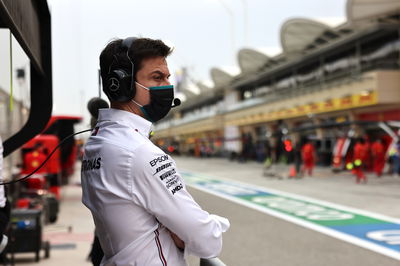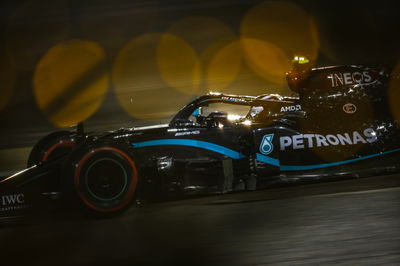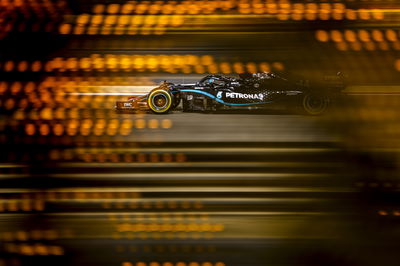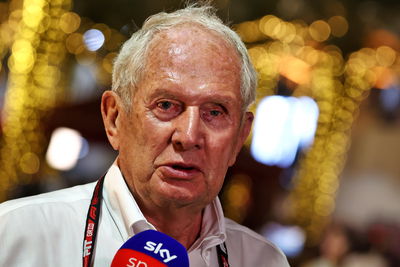Why Mercedes will not accept Ferrari's 'insulting' F1 engine convergence idea

Mercedes boss Toto Wolff has warned that the introduction of engine performance balancing would mark the “beginning of the end” for Formula 1, adding it would be a “humiliation” which manufacturers should not accept.
Both Red Bull and Ferrari have suggested that F1 should introduce a system for power unit performance convergence in 2022 as part of a complex debate over Red Bull’s push to bring forward an engine development freeze so it could take over Honda’s power units and avoid the high costs of upgrading.
Ferrari boss Mattia Binotto said on Friday at the Bahrain Grand Prix that the team would now support an engine freeze, but along with Red Bull chief Christian Horner, insisted that power unit convergence is important to ensure teams cannot take any advantage of the freeze.
But while Mercedes is in favour of an early engine freeze, team principal Wolff stressed he saw no difference in the converge idea to the Balance of Performance method that is used across sportscars, GTs and touring cars to help equal out the competitiveness between different cars.
"I don't see any difference. I think this would be the beginning of the end [of F1]," Wolff said.
"The power unit is not only measured by the sheer max power, but it is subject to drivability, to weight, to cooling, and introducing a simple formula that fits all isn't possible and it’s not something that Mercedes would endorse.”
Wolff highlighted Ferrari have also boasted very strong power units in recent seasons and argued that Mercedes had to respond to that threat by pushing the limits of development for improvements without the aid of additional help.
“If you recall, we had a tokens system in the past when the regulations came out. And because some of our colleagues wished the tokens to be removed in order to catch up, we agreed to a removal of the tokens,” Wolff explained.
"Now some of our colleagues come back with a system of convergence, which honestly said, it is a bit of an insult when you look at the last few years, and the development of performances in the engine.
“Ferrari was clearly the most powerful engine in 2018, and by far the best in 2019. And we developed our engine, we continued to push the boundaries, and we brought something to the track in 2020 that we were hoping would catch up.
"That's why I cannot comprehend that any car manufacturer that trusts in its abilities to develop a power unit and a chassis would want some kind of mechanism that would balance the power units out. I don't think anybody would accept such a humiliation in public.”

Wolff also pointed out that similar performance equalisers have not worked well in other categories including the DTM - which Mercedes quit at the end of the 2018 season.
“I’ve seen it in DTM where weights were introduced based on your performances,” he said. “The only thing we heard after the races or after qualifying was ‘well, I would have qualified on pole if I wouldn’t have had five kilos in the car’. And that was the whole narrative of the DTM season.
“So Formula 1 must stay very, very far away from that or we end up in GTs where you design power units for the sole topic of manipulating the system.”
While Mercedes would be willing to drop its plans to introduce new E10 fuel as part of an engine freeze, Wolff said the German manufacturer would firmly reject any form of convergence mechanism.
“We won’t do Balance of Performance because as I said before, that is not in the interest of any car manufacturer, nor Formula 1 nor the drivers,” he added. “This is a meritocracy and it was always a meritocracy.”












